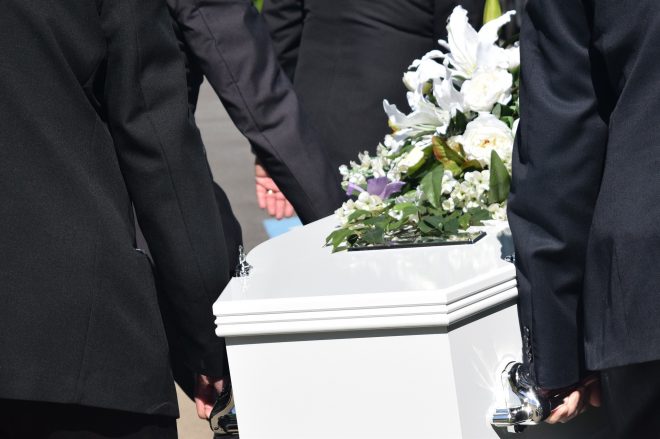When you are dealing with an unexpected death, you will be overcome with grief. On top of that, you will find yourself intimidated by many responsibilities for planning a funeral. You will have many tasks on your to-do list in the aftermath of a sudden loss.
Sadly, arranging the funeral services and burial arrangements when you’re in deep emotional turmoil makes everything difficult. And to make things even more complicated, you may have no idea where to begin. So at this crucial period, take a deep breath and remember that you are not alone.
You have supportive family members and friends to lean on. You can also count on a trusted funeral director to help get things done. And keep in mind, you have the inner strength to tackle this difficult journey. Take it one step at a time, so it doesn’t become overwhelming. Here are five tips to help you plan a sudden funeral for an unexpected death.
Make a List of People to Notify
When a person dies, the order of tasks that must be addressed usually depends on where the death occurs. Should someone die at home or work, a family member or colleague must immediately call for emergency help. Then, a medical doctor, examiner, or coroner is required to officially pronounce the time of death.
Should the death occur when close relatives and friends are present and while the person is under a doctor’s care, someone can call the funeral home directly. From there, you will make arrangements to transport the body to the funeral home.
Sadly, if a death occurs at home or in a place where no one is, you must notify the police first. Once they respond, only then can the deceased’s body be removed and transferred. Again, law enforcement is notified to ensure there is no foul play involved.
Get in Touch With the Funeral Home
Another important call you need to make after the death is to the funeral home. During this call, the funeral director will guide what you ought to do. Be prepared with the following details when you make the call:
- Complete name of the dead
- Contact information (address and phone)
- Time of death
- Location of the body
- Attending physician’s name and phone number
- The reporting person’s name, phone number, and relationship with the deceased
Arrange for the Body’s Transport
The circumstance of death will dictate how the body is transported to a funeral home or another facility. In most cases, where there is no foul-play, the body will be transferred from the location of death to your chosen funeral home.
If your deceased loved one has a will or has final expense insurance, now is the time to look at their wishes. However, should the deceased be in a place far away from home, arrangements must be made to transport the body back for the funeral service and burial In this instance, you must deal with two funeral homes, where the body is and the final destination. The two homes shall make arrangements on how to safely transport the body.
Take Time to Write the Obituary
This is a short death notice that is usually printed in the local newspapers or appears online. The latter makes it easy to disseminate on social media. The obituary typically contains a short biography of the deceased, accomplishments, and a list of surviving family members. Others include the funeral service details in case others want to be present for the ceremony.
An obituary is one way to honor your loved one’s memory, so take your time to write it. Though challenging, it will feel rewarding to encapsulate your loved one’s life in words while immortalizing it in print or the internet. In addition, obituaries are included in the archives, so this will last for generations.
Finalize the Ceremony Arrangements
Creating a memorable celebration of life can be quite difficult to prepare, especially if you are mourning. In sudden death, the deceased may not have been able to convey his or her wishes, so you must decide on your own. However, in some cases, the deceased may have a will or pre-planned arrangements, so you can just follow what it says.
If you have no final wishes to work with, an experienced funeral director with his team will be your ally. They can help ensure you cover all details and plan a truly poignant service. It can be traditional or informal, depending on what you decide and how much you can afford. Some key considerations are:
- Will the final disposition be cremation or burial?
- Do you need a grave marker?
- What type of casket to get?
- What clothes and accessories to put on the deceased?
- Will there be a visitation or wake?
- Who will perform the eulogies?
- What funeral flowers and music to play?
There are many details to map out, so working with the best team can help ease your worries. Remember, you don’t have to do it alone. Your family and friends are there to offer a helping hand. Expert funeral directors are also at your disposal to ensure everything goes on smoothly. By paying careful attention to detail, you can peacefully lay your loved one to rest.


